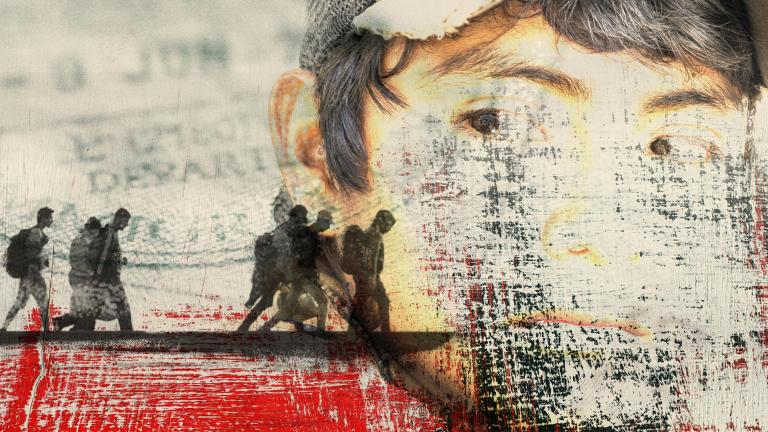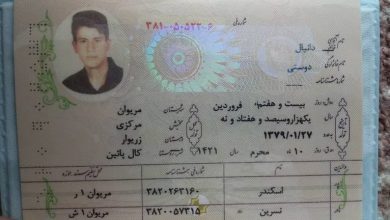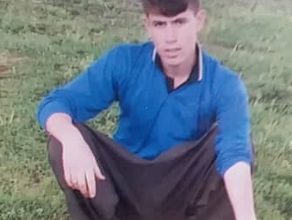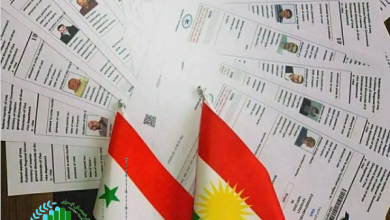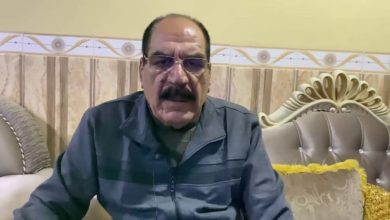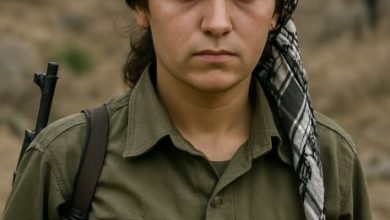Poverty, unemployment, and inequality have driven many young Kurds towards migration. However, the light on the other side of the border isn’t always real. Shahriar Motaei’s account reveals how the empty promises of KOMALA culminated in his escape from the group.
Economic Pressures and the Decision to Migrate
Socio-economic issues in various communities, particularly in developing countries, consistently have profound and far-reaching effects on people’s lives. These problems often manifest as poverty, unemployment, lack of access to education and social services, and also economic and social inequalities.
In this context, migration has become a common phenomenon, especially among the youth, as a perceived solution for escaping unfavorable living conditions.
Shahriar Motaei, born on February 10, 1997, in Sanandaj with a high school diploma, is a prime example of this reality. With incomplete education and serious financial problems, he made a fateful decision in an attempt to improve his and his family’s situation.
In 2018, overwhelmed by the economic and social pressures weighing him down, Shahriar decided to leave his homeland. This decision was not only driven by financial distress but also by despair over a lack of a bright future and suitable job opportunities.
After various work experiences and failures in securing his basic needs, he traveled to the Kurdistan Region of Iraq (KRI) on the recommendation of a friend who was a member of the armed KOMALA group. This choice led him into a new, unfamiliar world, one that held sweet promises of decent income and comfortable living conditions.
Failure in the KRI and Entry into the KOAMALA Base
The reality, however, did not live up to the promises. After 75 days at the KOMALA base, Shahriar and his wife were met with disappointment and frustration. They realized none of the promises had been fulfilled, and in early 2019, they decided to return to Iran.
This experience highlights the fundamental challenges many young people face when seeking better living conditions. We further analyze the social and economic dimensions of this phenomenon by examining the life of Shahriar Motaei and his reasons for leaving Iran.
Interview with Shahriar Motaei
Question: What led you to decide to leave Iran?
Shahriar Motaei: Financially, I was in a terrible situation. By late 2018, the pressure of life was genuinely crushing me. I couldn’t finish my diploma. Studying was always hard for me—not because I was incapable, but family problems, lack of money, and the expectations placed on me wouldn’t let me focus.
After dropping out, I held various jobs for a few years: mechanic’s apprentice, street vendor, and I even helped out in a fruit warehouse for a while. But none of them offered a stable income.
I was married to an understanding and patient girl. But a man’s wife also expects a safe roof, a normal life, and a bright future. I, on the other hand, could barely scrape together the rent.
I was always looking for a way out. When one of my friends told me there was a lot of work in Iraqi Kurdistan, I decided to go that very night. It wasn’t legal, as I had neither a passport nor enough money. I crossed the border illegally, hoping to build a new life on the other side.
Question: What were the conditions like after you entered the Kurdistan Region of Iraq (KRI)? Were you successful in finding a job?
Shahriar Motaei: Not at all. Things were not as I had imagined. There were no jobs, and I didn’t have suitable accommodation. The first few days, I slept with several others in rented houses. The nights were cold, and I spent the days searching for work.
But everywhere I went, they either said there was no space or they turned me away because I was Iranian. I was truly stuck in the KRI, and things were even worse in Iran.
I had effectively reached the end of the line; I had no money and no hope. In this state, an old acquaintance, a friend from Sanandaj, found me. He told me they had good conditions at the KOMALA base. His words sounded appealing; he said: “There’s bread there, a place to stay, a life. You can be one of us and live comfortably.” He even said they gave monthly payments.
When you’re exhausted and helpless, a piece of bread and a place to sleep can become a massive dream.
Question: So, the offer to join the KOMALA group came from that old friend?
Shahriar Motaei: Exactly. He tried to lure me in with many promises and false descriptions. Honestly, at that moment, the facilities he spoke of were more important to me than political or ideological issues. I thought maybe I could save myself.
Salary, a good place to live, and facilities—in my financial situation, this was a dream! Then a thought crossed my mind; I said maybe I could bring my wife, Mahtab, and we could start over together.
I called her and told her life was easier here, everything was provided, and we should come and start afresh together. Although she was hesitant, she finally came.
Question: What was it like being at the Komala base? Was it what you imagined?
Shahriar Motaei: Never! It was the complete opposite of what my friend had said. The KOMALA base was truly like a closed camp. We had no freedom, and from day one, we were forced into heavy, difficult labor.
We woke up early in the morning, did mandatory work, pulled guard duty at night, and attended daily meetings. There was no sign of a salary or proper food. The environment wasn’t even suitable for women.
Mahtab quickly realized we had been deceived. She was constantly worried, agitated, and kept asking, “Where have you brought us?” I was ashamed of the situation and didn’t know what to tell her.
Nothing there was real: not the promises, nor their humanitarian claims. When they saw Mahtab was dissatisfied, they tried to talk to her and show some leniency, but we both knew we had to escape.
Question: How were you able to leave? Did they allow you?
Shahriar Motaei: Leaving there was extremely difficult. When we first said we wanted to go, they didn’t take us seriously at all. When we insisted, they told us we had to pay an exit fee.
The amount they demanded was not huge compared to the risks we might face if we escaped. They said we had to pay five million Tomans to be allowed to leave. In effect, they were extorting money!
They didn’t pay us a salary, but they took a ransom when we wanted to leave! I don’t know why, maybe because we were new or because we had come as a family, their strictness was less. In any case, with great difficulty, we collected the money from my family and paid them.
Question: When did you return to Iran, and what happened afterward?
Shahriar Motaei: We returned to Iran on May 6, 2019. Border officials checked us and referred us to court for illegal exit.
We paid a fine, and fortunately, the judge closed the case. But that bitter experience will never leave our minds.
I have been working at a car wash for three years now. My income is low, but I am no longer looking for shortcuts. I know that if something is to improve, it must be through patience and genuine effort, not empty promises.
Question: If someone in your situation today was considering a similar decision, what would you tell them?
Shahriar Motaei: Just one sentence: “Nowhere is paradise, especially when the promises are too sweet.” If anyone tells you everything is ready for you, know that something is fundamentally wrong.
Now I understand that nothing is gained for free, and no group is genuinely trying to help the helpless; they are merely exploiting people’s circumstances.

